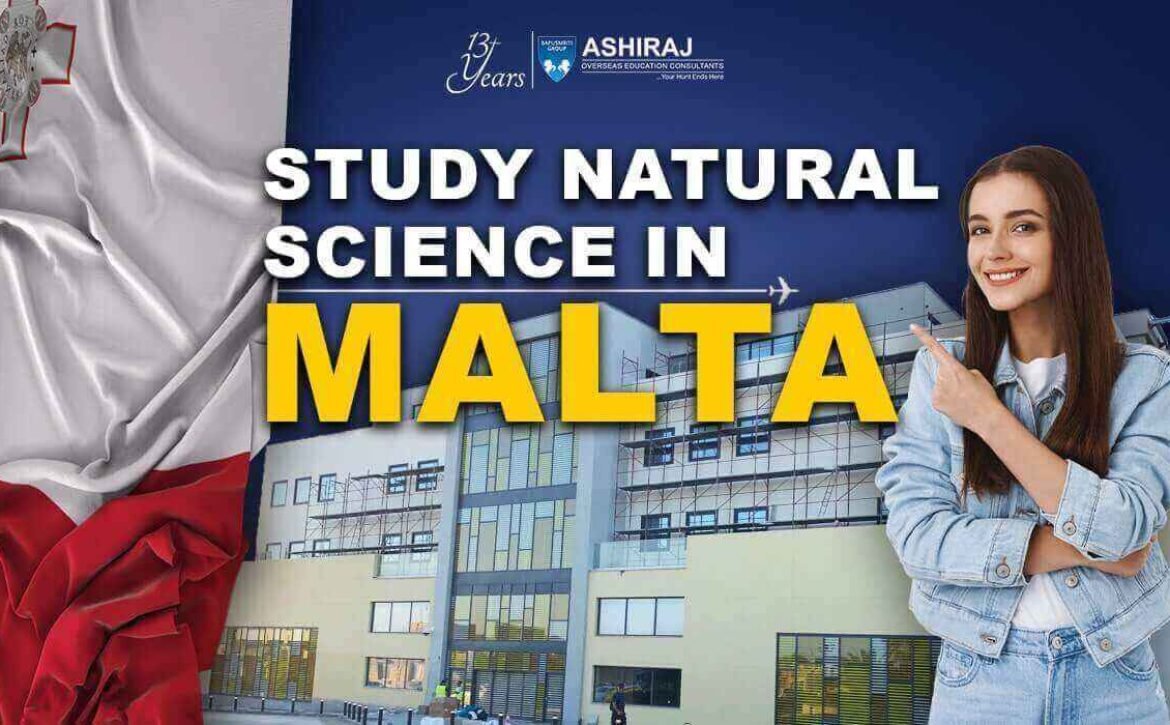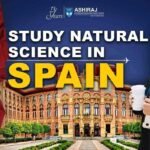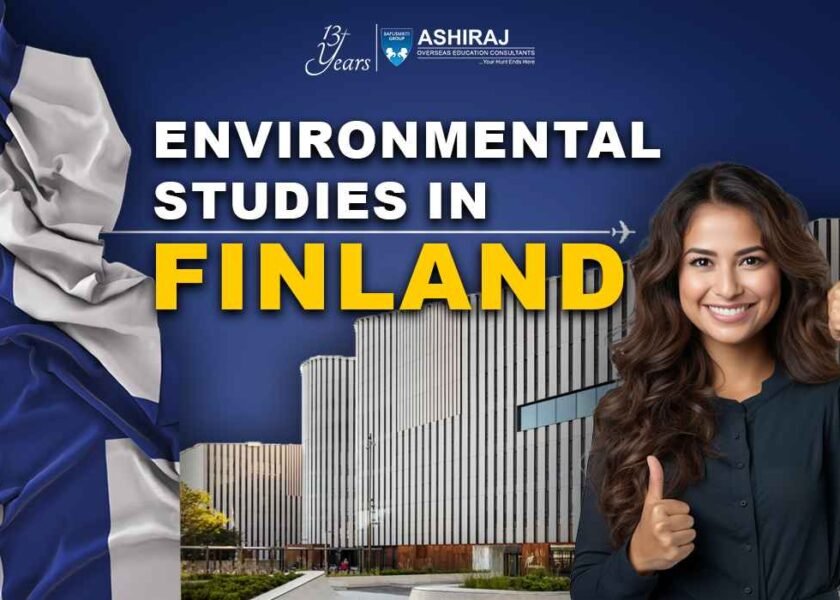
Natural Science in Malta
Malta, a picturesque archipelago nestled in the heart of the Mediterranean, boasts a rich tapestry of natural wonders that beckon explorers and scientists alike. The field of Natural Science in Malta encompasses a diverse range of disciplines, from marine biology to geology, each unveiling a unique facet of the islands’ ecological marvels. Blessed with crystal-clear waters, Malta provides an ideal laboratory for marine scientists studying the intricate ecosystems that thrive beneath the surface.
The study of Natural Science in Malta extends beyond its shores, delving into the geological formations that shape the islands and contribute to their distinctive landscapes. From the rugged cliffs of Gozo to the limestone formations of the main island, Malta’s geology narrates a compelling story of earth’s dynamic forces. As we embark on a journey through the natural wonders of Malta, the interplay of scientific inquiry and the island’s breathtaking beauty unfolds, revealing the symbiotic relationship between exploration and understanding in the realm of Natural Science in Malta.
Why to Study Natural Science in Malta?
- Unveiling Ecological Marvels: Malta, a captivating Mediterranean archipelago, offers a compelling reason to delve into Natural Science. Its diverse ecosystems, from vibrant marine life to unique geological formations, serve as an open canvas for scientific exploration.
- Living Laboratory: Studying Natural Science in Malta provides a hands-on experience in marine biology. The crystal-clear waters surrounding the islands become a living laboratory, offering students a chance to unravel the mysteries of underwater life.
- Geological Diversity: The islands’ geological makeup, featuring limestone cliffs, ancient formations, and caves, presents an intriguing study ground for aspiring geologists. Malta’s geological tapestry tells a story of earth’s evolution, providing students with real-world examples to enhance their understanding.
- Cultural Intersection: Beyond nature, Malta’s rich history and cultural diversity intersect with Natural Science. The remnants of ancient civilizations and the influence of human activities on the environment add an extra layer to scientific inquiry.
- Global Relevance: The knowledge gained studying Natural Science in Malta extends beyond its shores. The skills acquired here are globally relevant, preparing students for a future where environmental understanding is crucial.
In essence, choosing Malta for Natural Science education is an invitation to explore, discover, and contribute to the fascinating world of ecological wonders, seamlessly blending academic pursuit with the allure of the Mediterranean.
Top Universities to Study Natural Science in Malta
University | QS World University Ranking 2023 | Type of University | Average Annual Fees | Programs Offered |
University of Malta | 601-650 | Public | $5,000 – $10,000 | Natural Science, Biology, Environmental Studies |
Malta College of Arts, Science and Technology (MCAST) | Not Ranked | Public | $4,000 – $8,000 | Applied Sciences, Marine Biology, Geology |
American University of Malta | Not Ranked | Private | $12,000 – $20,000 | Environmental Science, Earth Systems, Biology |
Global College Malta | Not Ranked | Private | $8,000 – $15,000 | Sustainable Development, Environmental Management |
Queen Mary University of London Malta | Not Ranked | International Branch | $15,000 – $25,000 | Biological and Chemical Sciences, Environmental Science |
When considering Natural Science in Malta, a glance at the top universities becomes imperative. The University of Malta, a public institution, stands out with programs in Natural Science, Biology, and Environmental Studies. MCAST, another public option, offers courses in Applied Sciences, Marine Biology, and Geology at a more affordable fee range. For those seeking private institutions, the American University of Malta provides options like Environmental Science and Biology, albeit with a higher tuition range. Global College Malta focuses on Sustainable Development and Environmental Management, catering to environmentally conscious students. Additionally, the international branch of Queen Mary University of London in Malta offers programs in Biological and Chemical Sciences along with Environmental Science. The diverse offerings and varied fee structures make these universities integral to the pursuit of Natural Science in Malta.
Course Curriculum for Natural Science in Malta
- Comprehensive Foundation: The Natural Science curriculum in Malta lays a solid foundation, encompassing core subjects like Biology, Chemistry, and Physics. This ensures a well-rounded understanding of the fundamental principles governing the natural world.
- Marine Biology Emphasis: Given Malta’s unique geographical position, courses often delve into Marine Biology. Students explore the diverse marine ecosystems surrounding the islands, conducting fieldwork and research to grasp the intricacies of underwater life.
- Geological Exploration: The program includes a focus on geology, unraveling the geological history of Malta. Students examine limestone formations, caves, and cliffs, gaining insights into the forces that have shaped the islands over millennia.
- Environmental Studies Integration: Natural Science in Malta emphasizes the intersection of science with environmental studies. This integration allows students to analyze the impact of human activities on ecosystems and develop strategies for sustainable practices.
- Research Opportunities: The curriculum promotes hands-on research, providing students with opportunities to contribute to ongoing scientific inquiries. From biodiversity studies to environmental impact assessments, students actively engage in research projects.
- Interdisciplinary Approach: Recognizing the interconnectedness of scientific disciplines, the curriculum adopts an interdisciplinary approach. Students are encouraged to draw insights from biology, chemistry, and geology to address complex ecological challenges.
In essence, the Natural Science curriculum in Malta combines a robust theoretical foundation with practical experiences, making it a dynamic and enriching educational journey. The program’s focus on marine biology, geological exploration, and environmental studies aligns seamlessly with Malta’s ecological richness.
Eligibility Criteria & Admission Requirements for Natural Science in Malta
- Academic Qualifications: Prospective students are required to hold a relevant bachelor’s degree in Natural Science, Biology, Chemistry, or a related field from a recognized institution. A strong academic background is a key criterion for admission.
- Language Proficiency: Proficiency in English is mandatory. Applicants can submit either IELTS or TOEFL scores as proof of their language proficiency. The minimum IELTS score required is 6.5, and for TOEFL, a minimum score of 80 is expected.
- Standardized Tests: While GRE or GMAT scores are not universally mandatory, some universities may consider them as part of the application process. Students are encouraged to check the specific requirements of their chosen institution. The typical range for GRE is 300-320, and for GMAT, a score of 600 and above is recommended.
- Documentation: Applicants need to provide a set of documents, including academic certificates, demonstrating their educational qualifications. Additionally, a valid passport and student visa are essential for international students.
- Work Experience: Though not mandatory for all programs, some may prefer candidates with relevant work experience in the field of Natural Science. This can strengthen the application, showcasing practical insights and a commitment to the field.
Table: Standardized Test Scores
Test | Minimum Score |
IELTS | 6.5 |
TOEFL | 80 |
GRE | 300-320 |
GMAT | 600 and above |
Understanding and meeting these eligibility criteria ensure a smooth application process for those aspiring to pursue Natural Science in Malta. These criteria serve as benchmarks to ensure that students are academically prepared and possess the necessary language proficiency for successful academic engagement.
Documents Required for Studying Natural Science in Malta
- Passport: A valid passport is a fundamental requirement for international students. Ensure it has sufficient validity for the entire duration of your studies.
- Letters of Recommendation (LOR): Most universities seek two LORs from academic or professional references. These letters should highlight your strengths, achievements, and potential for success in the chosen program.
- Statement of Purpose (SOP): A well-crafted SOP outlines your academic and career goals, explaining why you’re a suitable candidate for the Natural Science program in Malta. It provides insights into your aspirations and motivations.
- Curriculum Vitae (CV): A comprehensive CV details your academic and professional journey, including research projects, internships, and relevant skills. It gives an overview of your qualifications and experiences.
- Official High School Transcripts: Transcripts from your high school education showcase your academic performance and form an essential part of the application process.
- Educational Certificates: Provide copies of your academic certificates, including degrees or diplomas earned in Natural Science or related fields.
- Work Experience Certificate: If applicable, include a certificate validating your work experience in the field. This strengthens your application, demonstrating practical exposure to the subject.
- Proof of Financial Resources: Universities often require evidence of your ability to finance your studies. This can include bank statements, sponsorship letters, or scholarship awards.
Ensuring the submission of these documents facilitates a smooth application process for Natural Science in Malta. Adhering to the specified requirements showcases your preparedness and commitment to pursuing academic excellence in the field.
Admission Process for Natural Science in Malta
- Research Programs: Begin by researching Natural Science programs offered by universities in Malta. Identify institutions that align with your academic and career goals.
- Check Eligibility Criteria: Review the eligibility criteria for the selected programs, considering academic qualifications, language proficiency (IELTS/TOEFL), and standardized test scores (GRE/GMAT).
- Gather Required Documents: Collect essential documents such as your passport, Letters of Recommendation (LOR), Statement of Purpose (SOP), Curriculum Vitae (CV), high school transcripts, educational certificates, work experience certificate (if applicable), and proof of financial resources.
- Submit Online Application: Complete the online application form provided by the chosen university. Ensure accurate and truthful information throughout the application.
- Pay Application Fees: Pay the required application fees, which may vary among institutions. Keep a record of payment confirmation for reference.
- Wait for Admission Decision: After submitting the application, patiently await the admission decision. Universities may take some time to evaluate applications thoroughly.
- Acceptance and Visa Process: Upon receiving an acceptance letter, proceed to the visa application process. Prepare the necessary documents, including the acceptance letter, for your student visa application.
- Enrollment and Orientation: Once the visa is approved, complete the enrollment process and attend the orientation program. Familiarize yourself with campus facilities, academic resources, and program expectations.
Embarking on the journey of Natural Science in Malta involves a systematic approach, ensuring a smooth transition from application to enrollment. Following these steps diligently enhances your chances of securing admission to the desired program.
“Education is the most powerful weapon which you can use to change the world.”
Nelson Mandela
Cost of Natural Science Course in Malta
- Tuition Fees: The tuition fees for Natural Science programs in Malta vary between institutions and programs. On average, public universities tend to have lower fees compared to private ones. Expect an annual cost ranging from $5,000 to $20,000.
- Accommodation: Housing costs depend on preferences, with options ranging from on-campus dormitories to off-campus apartments. On average, monthly rent can range from $300 to $800.
- Living Expenses: Malta’s cost of living is moderate. Monthly expenses, including groceries, transportation, and other miscellaneous costs, may average between $500 and $800.
- Health Insurance: International students are often required to have health insurance. The annual cost for health coverage can range from $300 to $600.
- Books and Supplies: Budget for academic materials such as textbooks and supplies, which can amount to around $200 to $500 per year.
- Personal and Leisure: Allow for personal expenses and leisure activities. Setting aside $100 to $300 per month can cover entertainment, dining out, and other personal expenditures.
Considering these factors, the overall cost of studying Natural Science in Malta can range from $6,200 to $22,700 per year. It’s advisable to budget carefully and explore scholarship opportunities to ease the financial burden. With a strategic approach, pursuing Natural Science in Malta becomes an affordable and enriching educational endeavor.
Scholarships for Natural Science Courses in Malta
Scholarship Name | Eligibility Criteria | Amount (USD) | Application Deadline |
Malta Government Scholarships | Open to international students pursuing Natural Science. Academic excellence and financial need considered. | Varies | March 1st (annually) |
University of Malta Scholarships | Available for undergraduate and postgraduate Natural Science students. Merit-based with academic achievements. | Up to $5,000 | May 15th (annually) |
MCAST Scholarships | Aimed at students enrolled in MCAST’s Natural Science programs. Merit and need-based criteria apply. | Up to $3,000 | June 30th (annually) |
American University of Malta Scholarships | For Natural Science students demonstrating academic prowess. Merit-based with varying award amounts. | Up to $8,000 | Rolling Basis |
Erasmus+ Scholarships | Designed for students participating in exchange programs. Natural Science students can benefit from international mobility grants. | Varies | February 1st (varies yearly) |
Navigating the financial aspects of studying Natural Science in Malta becomes more feasible with available scholarships. These opportunities cater to a range of criteria, including academic excellence, financial need, and program-specific eligibility. Aspiring students should pay close attention to deadlines and requirements, enhancing their chances of securing financial support for their educational journey in Natural Science in Malta.
Career Opportunities After Natural Science in Malta
Job Profile | Responsibilities and Qualifications | Average Salary (USD) |
Environmental Scientist | Conduct environmental research, analyze data, and develop solutions. | $35,000 – $45,000 |
Marine Biologist | Study marine life, conduct fieldwork, and contribute to conservation. | $40,000 – $50,000 |
Geologist | Investigate earth processes, study rock formations, and analyze data. | $38,000 – $48,000 |
Research Scientist | Conduct experiments, analyze results, and contribute to scientific knowledge. | $45,000 – $55,000 |
Conservation Officer | Implement conservation programs, monitor wildlife, and engage in outreach. | $32,000 – $42,000 |
Natural Science graduates in Malta can explore diverse and rewarding career paths. Environmental Scientists contribute to sustainable practices, while Marine Biologists play a crucial role in preserving marine ecosystems. Geologists study the Earth’s composition, and Research Scientists advance scientific knowledge through experimentation. Conservation Officers work towards preserving biodiversity. The average salaries range from $32,000 to $55,000, depending on the job profile and experience. Pursuing Natural Science in Malta not only offers an enriching academic experience but also opens doors to impactful careers in fields vital for environmental conservation and scientific advancement. As the demand for skilled professionals continues to grow, graduates in Natural Science in Malta find themselves well-positioned for dynamic and fulfilling careers.
Frequently Asked Questions About Natural Science in Malta
Malta offers programs like Marine Biology, Environmental Science, and Geology in Natural Science.
Yes, various scholarships are available, including government scholarships, university-specific awards, and international mobility grants.
The average cost, including tuition, accommodation, and living expenses, ranges from $6,200 to $22,700 per year.
Yes, applicants typically need to demonstrate proficiency through IELTS or TOEFL, with a minimum score requirement.
Yes, graduates can explore careers as Environmental Scientists, Marine Biologists, Geologists, and more, with average salaries ranging from $32,000 to $55,000.
Eligibility criteria include a relevant bachelor’s degree, language proficiency (IELTS/TOEFL), and, in some cases, standardized test scores (GRE/GMAT).
Application deadlines vary but commonly fall between March and June, depending on the university and program.
Yes, international students are allowed to work part-time during their studies in Malta.
Yes, students can explore exchange programs, such as Erasmus+, to enhance their international experience.
Essential documents include a valid passport, academic transcripts, Letters of Recommendation, Statement of Purpose, and proof of financial resources.




